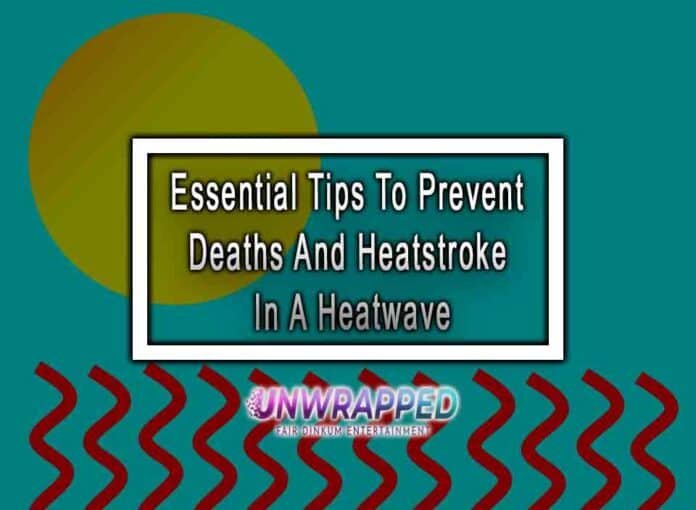Deaths And Heatstroke Preventions In A Heatwave
Essential Tips To Prevent Deaths And Heatstroke In A Heatwave – High temperatures and prolonged exposure to the sun may cause sunstroke or heat stroke, which can be fatal. Excessive heat may cause the body’s temperature-regulating systems to malfunction, resulting in dehydration and other hazardous consequences. The optimal body temperature is between 35 and 37 degrees Celsius, but if it rises over that, you must exert effort to cool down, which uses a lot of energy.
When the body temperature rises over its limit for an extended period of time, a sequence of heat stroke symptoms develop, indicating that something is wrong, such as extreme weariness, cramps, or hot flashes. In these situations, remember that prevention is always preferable than treatment.
TIPS FOR DEALING WITH THE HEAT WAVE
Hydration, Essential
This is the most crucial suggestion. Drink roughly 2-2.5 liters of water every day to maintain healthy levels in the body at bay and for all of its systems to perform correctly.
Hydration is therefore slow and effective, counteracting the loss of fluids caused by perspiration. The most practical method, particularly for the elderly and children, is to have a bottle of water with you at all times and take little sips as needed.
Departure Times
Walking is beneficial, although it is best to avoid going outdoors during the most intense temperatures. Avoid going outdoors during the warmest hours of the day to lessen the sense of heat in the body. These are the hours between ten o’clock in the morning and five o’clock in the afternoon.
Appropriate Clothing
The cloth must provide sun protection while still allowing perspiration to escape. Light hues also reflect more sun rays, keeping the body cooler by avoiding heat from focusing on garments. Wearing light, comfortable, and breathable clothes, as well as light footwear, a hat or cap, and sunglasses, is excellent.
Good Insulation At Home
Keeping the home cool has become difficult. During the day, Blanco suggests shutting windows and lowering blinds, and ventilation at night.
Small Meals
Meals are just as crucial as liquids consumption and selection. Light meals with lots of fresh fruits and vegetables are ideal. Incorporating fatty and strongly spicy meals into our diet, on the other hand, is unsuitable and will make digestion harder.
Reduce Outdoor Physical Activity
Sport is an excellent ally for physical health, but it may be dangerous in the face of high temperatures, which contribute to an increase in body temperature while undertaking physical activities, triggering a variety of physiological responses in our bodies to protect us from the heat. Exercise (for example, walking or running) should be done early in the morning or late in the day. The weather is softer, and shaded spaces are simpler to come by.
Also see: Foods To Avoid If You Suffer From An Overactive Bladder











